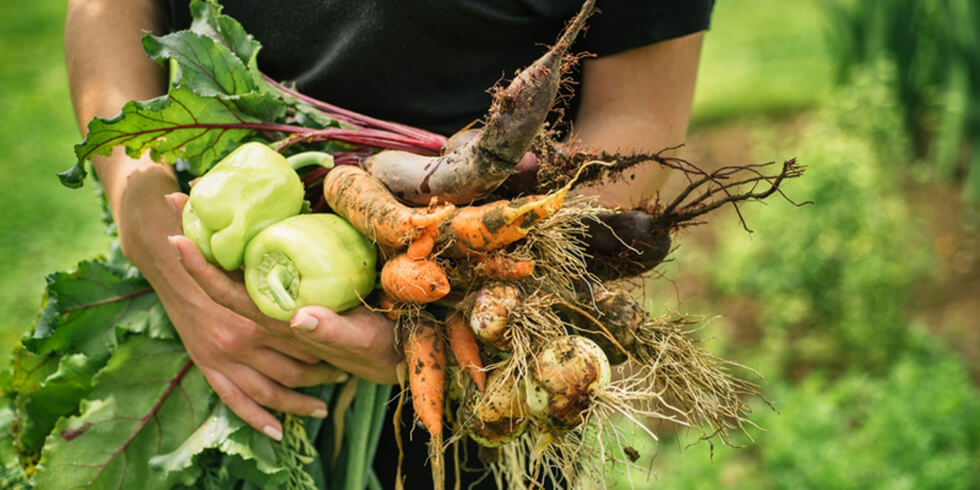Part of the Food Policy Snapshot Series
Policy Name: Sacramento County’s Urban Agriculture Ordinance
Location:
Sacramento, California
Population: 500K (City Population, 2017)
Overview:
In an effort to support the production and sale of locally grown foods, build community, provide economic opportunity, reduce food insecurity and improve public health, Sacramento’s City Council approved the Urban Agriculture Ordinance in 2015. The Ordinance legalized the sale of fresh produce on residential streets, allowing city residents to grow and sell food directly from their properties. It was followed by the Urban Agriculture Incentive Zone Ordinance, which provided tax incentives for people to convert vacant lots for agricultural use. Then in 2017, Sacramento County approved its own Urban Agriculture Ordinance, allowing residents not only to grow and sell produce but also to keep bees, chicken and ducks.
Sacramento has recently branded itself as America’s Farm-to-Fork capital due to the county’s consistent efforts to improve (1) health through the growth and use of nutritious ingredients and cooking practices, (2) the economy through support of local businesses and growers, (3) the environment through reduction of food waste and the use of vacant land, and (4) the community by bringing consumers closer to where their food is grown. For Sacramento, farm-to-fork is a way of life and has been demonstrated by the region’s countless efforts to improve agriculture and food policy.
Progress to date:
On March 24, 2015, the Urban Agriculture Ordinance was adopted by the Sacramento City Council, allowing residents to produce and sell produce.
On August 6, 2015, Sacramento City Council passed the Urban Agriculture Incentive Zone Ordinance.
On January 24, 2017, Sacramento County approved an ordinance allowing urban and suburban Sacramento County residents to grow and sell crops, keep bees and raise chickens and ducks at home.
Program/Policy Initiated: January 24, 2017
Food policy category: Food Insecurity / Food Security
Program goals: to reduce food insecurity and increase access to fresh produce among residents in low-income neighborhoods
How it works:
The Sacramento County’s Urban Agriculture Ordinance, effective February 23, 2017, allows private, community or market gardens to set up temporary stands to sell crops and certain goods produced on site directly to the public. This is the primary mechanism by which the ordinance provides opportunities for residents to obtain fresh, healthy and locally produced foods from their neighbors.
Products that are permitted for sale at Urban Ag Stands are limited to fresh produce, eggs, honey, and cottage foods, provided that all items are grown or produced on site. Cottage foods are those on an approved list maintained by the California Department of Public Health that are prepared and packaged in private homes to a particular standard and with a valid cottage food permit.
The Urban Agriculture Ordinance reduces barriers to participating in urban agriculture by:
- Permitting small farms on vacant lots in urban and suburban neighborhoods in order to allow for the growing of crops for personal use and sale.
- Allowing urban agricultural stands at the site of private, community and market gardens in order to allow crops and goods produced on site to be sold to the public.
- Allowing for the keeping of egg-laying chickens and ducks as well as bees.
- Allowing for the keeping of larger animals (greater than 75 pounds) on lots less than 20,000 square feet when associated with an educational program.
- Allowing for the keeping of hogs on lots greater than two acres, when associated with an educational program.
A Temporary Use Permit is required to operate an urban agricultural stand at the site of a of private, community or market garden. A Minor Use Permit is required to keep animals over 75 pounds on lots less than 20,000 square feet and hogs on lots greater than two acres for incidental use when associated with an educational program.
Why it is important:
The ordinance (1) provides economic opportunity for small-scale farmers; (2) promotes equity by helping to ensure fresh food in food desserts or areas that lack full-service grocery stores; (3) fosters community collaboration and relationships through residential urban agriculture and improving health through social support and healthier food; (4) makes use of vacant and underutilized land.
Evaluation:
Sacramento County is responsible for evaluation.
Learn more: https://seedstock.com/2015/04/12/urban-farming-ramps-up-in-sacramento-with-passage-of-new-ordinance/
Point of Contact:
City of Sacramento
300 Richards Boulevard, 3rd Floor
Sacramento, CA 95811
Call 311 inside city limits or 916-264-5011 outside city limits
Similar practices: In 2015, Nairobi County, Kenya, passed the Urban Agriculture Promotion and Regulation Act, which calls for the development of programs that promote urban agriculture in an effort to combat food insecurity. Learn more.
References:
https://www.sacbee.com/news/local/article128565554.html
https://www.sacbee.com/news/local/article16244966.html
https://seedstock.com/2015/04/12/urban-farming-ramps-up-in-sacramento-with-passage-of-new-ordinance/
https://www.per.saccounty.net/LandUseRegulationDocuments/Pages/Urban-Agriculture-Ordinance.aspx


